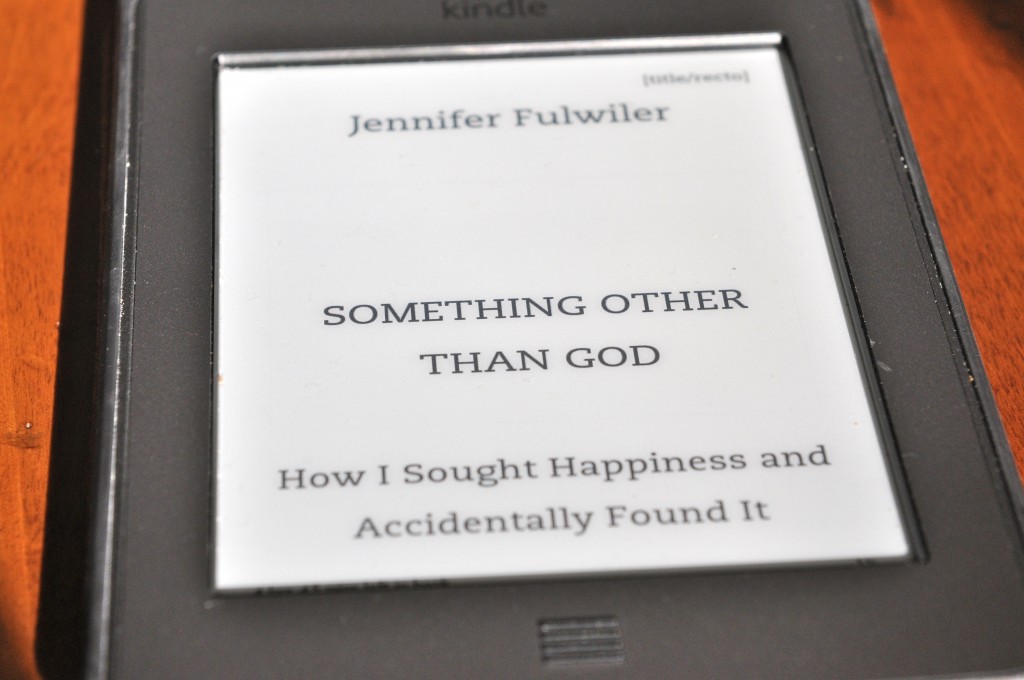I love a good conversion story. One of my favorite books (as you know because I’ve mentioned it repeatedly) is Rome Sweet Home. It’s a story about the conversion of an anti-Catholic, Evangelical Protestant minister to Catholicism. It’s an excellent book, but not really the type of conversion that I could identify with in many ways. As I’ve written about quite a bit, I was certainly not an evangelical anything when I began my process of conversion to Catholicism.
The first conversion story I began reading about when I thought maybe I wasn’t an atheist anymore was Jennifer Fulwiler’s. She writes the blog I mention all the time, Conversion Diary. I kind of feel a kinship with Jennifer, because she too used to be an atheist. Reading her posts helped me begin to recognize, long before I read Rome Sweet Home, that I really didn’t understand Catholicism, or Christianity in general. I realized that my (mostly negative) beliefs about the teachings of the Catholic Church were way off base after reading lots of her posts on various topics, like Natural Family Planning/contraception and confession.
When I heard Jennifer was writing a book, I was thrilled and I couldn’t wait for it to come out. In fact, I contacted her publisher and asked if they’d let me do a review of it so I might be able to read it before it came out. I actually didn’t really think they’d let me. But they did! I’ve read it twice. It’s that good.
The first thing I want to say about the book is that it is not a reprinting of various posts from the blog Conversion Diary. I have read a lot of Jennifer’s blog. I read it regularly now as new posts come out, and in the early days I combed through her site and read lots of her older posts as I was trying to learn as much as possible about the Catholic Faith. Even still, this book was filled with stuff I’ve never read before. I have purchased other memoirs written by popular bloggers before, and though I found them good, I have at times been disappointed that the books mostly consisted of various blog posts, slightly edited for the book version. Jennifer’s book is a story, not a collection of essays or posts. And it’s a darn good one.
The book has a wonderful balance of serious and funny. It is real and authentic. One of my favorite parts was her writing about her uncertainties about prayer and how to act at Mass during her early days of conversion. I often found myself laughing out loud and thinking, “Oh! Her too?” Like when she shut herself into a bathroom stall to have some privacy to read her Bible:
“I looked down at the toilet seat and hesitated. It would be nice to have somewhere to sit, but . . . what the heck. I wiped it off with toilet paper and sat down in my slacks. Listen, God, I said silently. Then I realized I was addressing the Almighty from a toilet. Surely there were rules about that. I stood up and continued . . .”
I haven’t exactly done that before, but if I had a dollar for all the times I wondered if I was breaking some sort of “rule” about how or when to pray or what to do at Mass . . . well I could probably at least buy a cute new pair of shoes or something.

On the more serious side, there were two threads to the plot (is it called a “plot” when it’s a true story?) that particularly resonated with me, and I’d like to focus my review on my thoughts about these.
The first is how Jennifer writes about her struggle with reconciling the idea that there could be a loving God who would let horrible things happen. For many years I was of the belief that when people said things like, “Everything happens for a reason,” it was a load of hooey. In response to this mindset I would think something like, “Whatever. There’s a lot of awful stuff that happens in this world, and there’s no way I’m believing that there’s some grand cosmic Godly purpose for it.”
Through her book, Jennifer weaves a compelling story of tragedy and grief to convey her inability to reconcile the idea of an all-good God with the sadness and losses in life. She writes,
“I fed the [rosary] beads through my fingertips until I held only the pewter crucifix. There was the familiar figure of Jesus, bleeding and dying. This image supposedly answered the question of human suffering. I just didn’t understand how.”
She goes on to describe her struggles in this area and finally, the beautiful realizations she reaches that bring her to a place of peace and understanding of how Jesus’s suffering and sacrifice do answer the question of human suffering, perfectly. As someone who went through similar questions and doubts myself, and sometimes still has trouble understanding, I loved this part of the book. She makes it all make sense.
The second thread in the book that spoke strongly to me was Jennifer’s description of her journey from being firmly, staunchly, absolutely pro-choice to becoming pro-life. I had a big struggle with this issue too for many months. In fact, one of the first things that got me questioning my formerly-held position on this issue was this post she wrote about how she became pro-life.
But even having read that post didn’t provide the full story of the internal (and sometimes external) conflict she went through around this issue. In the book, she writes about her early beliefs that abortion is a matter of freedom for women and that “An all-good God wouldn’t oppose freedom.” She writes about how, even after learning some very disturbing facts about the way abortion is sometimes practiced, she was reluctant to give up her pro-choice stance,
“As much as what I just read called into question the moral footing of the pro-choice position, there remained within me an unmovable resentment toward Catholicism for opposing abortion and therefore making women slaves to their bodies. . . . Within me there was a conviction with roots a mile deep that said that to oppose abortion would be unfair to women in the direst sense of the word.”
Not long ago I had this same dilemma. Jennifer’s story about how she came to resolve her inner battle about abortion is perfectly written. You can feel the tension in her progression through this conflict. It hit home with me because it echoed in many ways my own struggle with this hot-button issue. But as Jennifer details, and I have learned myself, it is when you make a point to really learn the reasons behind the Church’s stance on an issue, you can see it more clearly and move beyond emotional, knee-jerk reactions and reliance on the popular opinion that the Church is simply “anti-woman.” Also, I appreciate that she presents this issue in a way that isn’t judgmental of women who have faced this difficulty.
This is a wonderful book for so many reasons. It is obviously a story of religious conversion, but more than that it is a beautifully woven tapestry of many threads of a life’s struggles and doubts and growth. I love reading about people who allow themselves to evolve and flourish because of being open to something new. Something that may seem weird or foreign or scary.
Jennifer’s book is a must-read.
**Something Other Than God was released today! You can order the book from Amazon, Ignatius Press, or Barnes and Noble, or wherever you like to buy books. And Jennifer is having an online release party for the book and giving away lots of prizes. Buy the book. Enter the giveaways.
It’s a wonderful book with chances to win stuff! You can’t beat that.
Special thanks to Ignatius Press and Jennifer for letting me do this review.





Wow, loved your review. I’ve been reading her blog for quite some time too. I still haven’t pre-ordered the book (the procrastinator in me), need to get on that today. Maybe the free e-book will give me tips on how to NOT wait until the last minute to get things accomplished!
I know you’ll love it. And the e-book has great tips too!
Great review! Sounds like is a compelling writer.